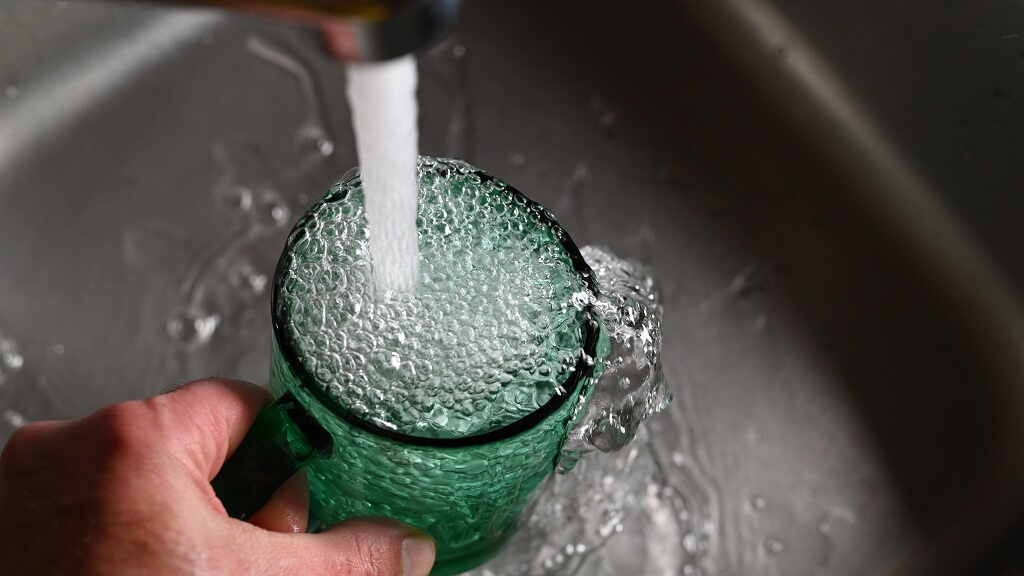As you probably know by now, you should drink water every day because it's
imperative to survive. You probably want to know if you have to drink water every day as it's recommended. So,
what are the benefits?
In this post, we will separate the facts from fiction. You should know what
the right amount of water is vs what would be too much water.
The Benefits To Drinking Water
The fact is water allows your body to function properly. According to the
*Harvard Medical School's Special Health Report 6-Week Plus For Healthy Eating, water has so many incredible
benefits to keep you safe and healthy:
- Water delivers nutrients and oxygen to your cells
- Water flushes bacterial from your bladder
- Prevents constipation
- Helps your digestion system
- Stabilizes your heart rate
- Provides normal blood pressure
- Cushions your joints
- Protects your organs and tissues
- Maintains electrolyte balance (sodium)
- Adjusts your body temperature
When you stay hydrated, you are allowing water to take care of so many parts of your body, you'd wonder how you could ever live without it. That's the point, you can not survive without water!
Most people will be fine with six cups of water each day, while others might need more and others less.
If you do not drink enough water you will become seriously dehydrated. Dehydration can lead to weakness, low blood pressure, confusion, dark urine vs clean urine, and dizziness. These symptoms are sending you a message, drink more water!
*Note: Harvard Medical School integrates science, technology, and needed experience, for students to relieve human pain and suffering anywhere in the world. They offer an impressive variety of research and service opportunities created by HMS, Boston-based affiliate institutions, MIT, and other renowned institutions. Students engage in critical issues regarding health care around the U.S. and abroad to practice humane services and innovative research.
Is It Possible To Drink Too Much Water?
It's extremely rare if you are a normal adult eating normal healthy foods, but you could drink too much water, anything can happen.
If you know you are drinking a lot of water but your kidneys are not releasing excess water through urination, you might have a condition known as hyponatremia. This is when minerals in your blood are diluted or watered down, it's the result of sodium levels in your blood. Your body's water level rises and your cells swell up. This condition can lead to serious problems, even life-threatening. Marathon runners, known as endurance athletes, are at risk of developing this condition.
There are other health conditions that play a key role in how much water you need to consume. You should consult with your doctor if you think you might have one of the following conditions:
Thyroid disease, kidney, liver, or heart problems, if you are taking medications that make you hold water such as NSAIDs, opiate pain medications, and even some antidepressants.
Must I Really Drink 8 Glasses Of Water A Day?
There is no evidence backing the theory you should drink 8 glasses of water (2 liters) every day. Research has shown that most people get all the water they need from the foods and beverages they consume every day.
Many beverages such as tea, coffee, juice, and soft drinks like soda have a certain level of water. Most people will drink these beverages along with some plain water to reach 70 to 80% of their fluid intake. The other 20 to 30% comes from the foods you eat.
It is recommended you ease up on beverages that are loaded with sugar. These drinks, like soda, can have a negative effect on your body including obesity, diabetes, and heart disease. Your best option is drinking plain water for good hydration.
How Much Water Should Anyone Drink Every Day?
Nothing is signed in concrete because everyone is different and so are their bodies. According to the Institute of Medicine of the National Academies believes:
The adequate amount for males should be approximately 12.5 oz (3.7 liters) each day
The adequate amount for females should be 91 oz (2.7 liters) each day.
That said, some people will have to drink more than some other people depending on several factors:
Those who have more bodyweight may need more fluid because over two-thirds of the adult body is made up of water.
Those who live in tropical or dry areas might need to drink more water in order to replace fluids lost by sweating. Everyone should drink more water during the hotter months.
Activity levels play a big role. If you are a runner or weight lifter, you will sweat and lose valuable fluids. Increasing your fluid intake in order to remain hydrated is important, especially if you work out in hotter weather or at higher altitudes.
Some health conditions can lead to the loss of fluids including fevers, vomiting, diarrhea, kidney stones, bladder infections, and other issues that cause excessive urination including diabetes.
For the majority of people, their normal drinking and eating habits will meet their body's water requirements. Therefore, if you drink fluids when you are thirsty, more than likely, you are taking in enough water. Unless you have been told otherwise by your doctor, you probably do not have to be concerned about your intake of water.
As long as you are aware of the importance of consuming water daily, chances are, you will be fine. If you are concerned about whether you are taking in enough water or not, we strongly suggest you consult with your doctor. If you have certain medical conditions, you might be required to take in a certain amount of water each day.



